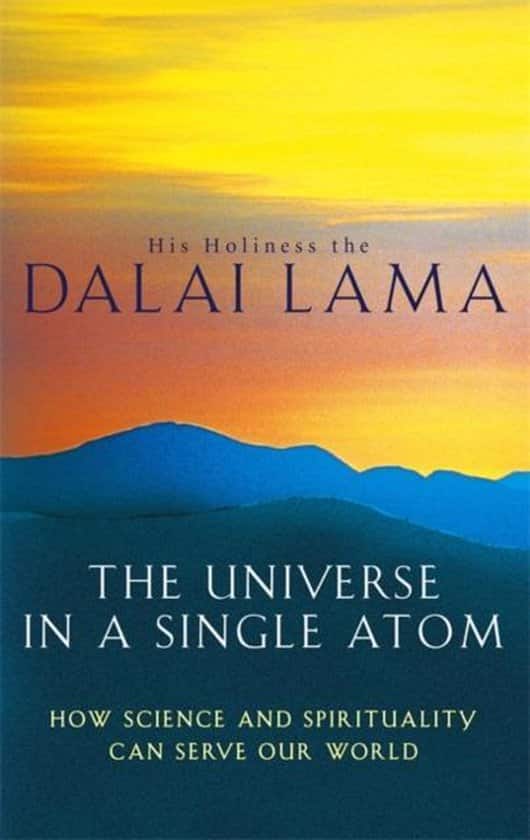The Universe In A Single Atom’
How science and spirituality can serve our world

In this rare personal investigation, His Holiness the Dalai Lama discusses his view of science and faith working hand in hand to alleviate human suffering. Drawing on a lifetime of scientific study and religious practice, he explores the great debates and makes astonishing connections between seemingly disparate topics – such as evolution and karma – that will change the way we view the world. While he sees science and faith as “complementary but different approaches to research with the same goal, the search for truth,” the fact is that the two have often been at the root of human conflict for centuries.
The Dalai Lama challenges us to see that the benefits of opening our hearts and minds to the connections between science and faith are far preferable to perpetuating the divisive rhetoric that often surrounds them. As we face such difficult and uncertain times, there is, as rarely before, a great need for human wisdom and compassion.
Theory Of Emptiness
“One of the most important philosophical insights into Buddhism stems from what is known as the theory of emptiness. Central is the deep recognition that there is a fundamental disparity between the way we perceive the world, including our own experience in it, and the way things really are. In our daily experience, we tend to interact with the world and with ourselves as if these entities possess a self-enclosed, definable, discrete, and abiding reality.
No attachment, no aversion
For example, if we examine our own conception of self-being, we will find that we tend to believe in the presence of an essential core of our being, which characterizes our individuality and identity as a separate ego, independent of the physical and mental elements that make up our existence.
The philosophy of emptiness (emptiness in itself) reveals that this is not only a fundamental error, but also the basis for attachment, clinging, and the development of our numerous prejudices. According to the theory of emptiness, any belief in an objective reality based on the assumption of an intrinsic, independent existence is simply untenable. All things and events, whether they are “material,” mental, or even abstract concepts such as time, are devoid of an objective, independent existence.
To intrinsically possess such an independent existence would imply that all things and events are somehow complete in themselves and therefore completely self-contained. This would mean that nothing has the ability to interact with or influence other phenomena. But we know there is cause and effect – turn a key in a car, the starter motor spins the engine, spark plugs ignite and fuel begins to burn… But in a universe of self-contained, inherently existing things, these events can never occur !
Thus the idea of intrinsic existence is incompatible with causation; this is because causation implies contingency and dependence, while all that inherently existed would be immutable and self-contained. In the theory of emptiness it is claimed that everything is only composed of dependent related events; of continuously interacting phenomena without a fixed, unchanging essence, themselves in dynamic and constantly changing relationships. Things and events are thus ’empty’ in the sense that they can never possess an immutable essence, intrinsic reality, or absolute ‘being’ that confers independence.”

